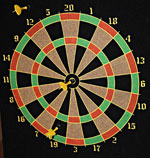How Do You Ground Your Training?
Sharing the Principles and Processes of Preparing Educators for Online Writing Instruction
Introduction
Most composition professionals would agree that students fare better when educational expectations, or outcomes, for their courses and individual assignments are clearly stated. To help their students be successful, writing instructors generally tend to provide their students with expected outcomes and reinforce how to meet those goals. They also provide structured support for student writers by scaffolding writing assignments and through targeted practice opportunities.
Online educators have the same needs as their students. They need clearly articulated outcomes for their teaching, supportive measures for professional development, and varied online pedagogical strategies that will help them and their students to be successful in the online environment. Educators often need specific training for online writing instruction -- training that transcends technological skills or specific platforms -- as they prepare to teach in online writing environments. They benefit from guidance in selecting and applying theory to their online practices.
Indeed, online instructors who teach without such guidance often have experiences like those of novice dart player below.
|
|
|
|
 |
|
In our experience, without adequate preparation through training and professional development, instructors struggle and find themselves throwing pedagogical darts in intuitive, untrained ways that may miss the target altogether or hit it without offering a clue as to what they did right. Anxiety increases because those who observe such instructors are both their students, who may not always know how to say a strategy is not working, and their program administrators, who may not know why a strategy is ineffective. In either case, however, under-prepared online instructors face a hit-or-miss situation that unnecessarily frustrates the educational process and delays building their online skills. Indeed, there are serious costs to such lack of preparation in terms of inadequate numbers of faculty for online instructional courses and tutoring. And there are costs in terms of the loss of human potential in an educational arena that badly needs strong online instructors. How do educators learn to hit the target -- with as many bull's-eyes as possible -- in an online setting that may be unfamiliar to them?
Although we present this dart game as one where an online instructor is trying to learn new skills without guidance from an experienced instructor, it is easy to see that any person who is working with a new skill might experience such frustration. When trying to acquire new skills and practices, all of us are students of that skill. Aside from a hit-or-miss strategy, many institutions take advantage of this student (or trainee) role when preparing instructors. Most likely, such training uses successful educational strategies like clearly stated outcomes, individualized guidance, and practice opportunities to develop their online instructional skills. Similar to the pedagogical strategies educators use with their own writing students, such instructor training programs also use common support structures:
- Written and spoken guidance in the forms of handouts, textbooks, online resources, and classroom lecture;
- Opportunities (often multiple chances) for feedback during practice instruction and after live instruction;
- Workshop time with in-the-moment assistance from experienced online instructors;
- Peer response group activities for discussing and collaborating about their skills and concerns;
- Individual time with experienced online instructors through face-to-face and online conferences; and
- Consultation with other online instructors using traditional and online venues.
As novice online instructors -- students or trainees -- educators certainly benefit both cognitively and affectively from clearly stated goals, supportive measures, and various training strategies. With them, online instructors can flourish. Without them, however, online instructors may find themselves in uncertain circumstances, frustrated by a lack of understanding surrounding their own online instructional processes and products -- much like the fictional dart player in the scenario above.
But how do educators provide such training for themselves and for each other as they prepare to teach in online writing environments?
Certainly, many institutions and educational organizations realize this need and they provide carefully developed and thoughtful training and professional development for their online writing instructors. Some of the programs are fairly well-known for depth and quality of online training, such as DeVry University, Michigan Tech, Smarthinking, Inc. and Texas Tech. Yet, unless educators have been fortunate enough to participate in one of these programs, they are likely to know little about the training and professional development involved. Our experience is that the subject of preparing educators for online writing instruction is insufficiently discussed in published literature and only cursorily addressed at professional conferences and within relatively small professional listservs. However, without detailed discussion about a variety of online training programs, investigation into them, and understanding about the theories that ground not only the training but also the pedagogies they espouse, educators at both the individual and institutional levels are like the fictional dart player above: finding some success, but uncertain about how to articulate that success and unlikely to replicate it programmatically and in methodological ways.
Thus, our primary purpose in this webtext is to call for more professional discussion about training and professional development programs for online instructors. The simple fact is that it is difficult to know exactly what training processes various programs stress -- and whether and how they work -- because so little is written about them in the professional literature. We suggest, therefore, that online training generally needs to be addressed more broadly among those who already have implemented successful programs that provide comprehensive and systematic support for novice online instructors. All educators and administrators involved in the development and growth of online programs can benefit from sharing and exploring the processes and principles that ground them.

